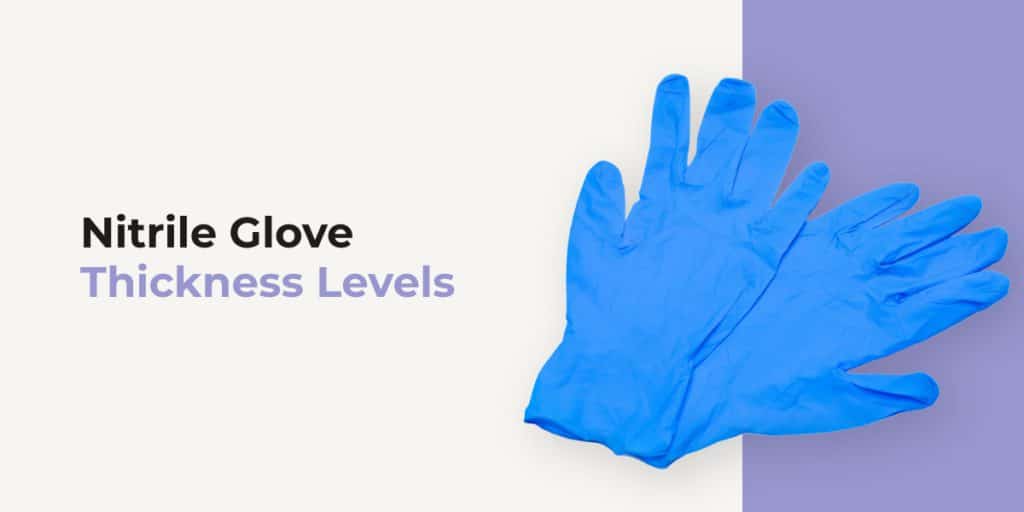
Nitrile Glove Thickness Levels
If you’re wondering how to choose nitrile glove thickness levels, you will want to select the right balance between dexterity and protection. You’ll need to pick the right nitrile gloves to protect yourself while still having plenty of manual agility and grip for your tasks.
You can buy nitrile gloves with different thickness levels at SUNLINE Supply. It’s easy to order quality gloves online from SUNLINE Supply and have them shipped directly to you.
Thin vs. Thick Nitrile Gloves
Nitrile gloves come in different gauges, or thickness levels. They are measured in mils, which is one one-thousandth of an inch. Thickness levels can range from 4 to 8 mil thick for medical- and industrial-grade gloves. While this can seem like a small range of difference, it can significantly impact dexterity, protection and how the gloves feel.
Thicker gloves will provide more of a barrier, but you will not feel as many fine details through them. Whether you choose thinner gloves or thicker gloves of at least 6 mils will depend on why you need nitrile gloves in the first place.
How to Choose Nitrile Glove Thickness
When choosing glove thickness, it’s not as simple as going with the highest number. The highest nitrile glove thickness levels are not always ideal for every application.
For situations where you need more protection against tears or will be handling caustic chemicals for longer periods, look for at least 6 or even 8 mils of thickness. These levels will provide the most robust protection. For food-grade gloves, a thickness of under 2 mils can be ideal.
Thin gloves of 2 mils or fewer have many benefits:
- They are inexpensive compared with thicker gauges.
- They are easier to store.
- They can provide enough protection for many applications.
- They allow for good dexterity and tactile sensitivity and may not feel like you’re wearing gloves at all.
- They may be more comfortable to wear than very thick gloves.
When choosing nitrile gloves, consider:
- Tactile sensitivity: In an industrial setting, you may need good grip but not necessarily tactile awareness. In a medical environment, however, you may need a thinner glove that allows you to examine patients.
- Glove layering: If you need to layer gloves to provide an extra barrier, you will want to choose a glove with a higher thickness. Layering gloves can allow tears to form.
- Dexterity: If your gloves are so thick they don’t allow you to grip objects securely, that can be a job hazard. Choose a low enough thickness that you can grip items well without compromising permeability.
- Barrier protection: Consider what you are trying to protect against. In a food service setting, you may only need a thin glove to keep germs away from food. In an industrial workplace where you are handling corrosive materials, a high thickness may be ideal.
Shop Nitrile Gloves in Bulk
SUNLINE Supply allows you to buy nitrile gloves in various thickness levels from the comfort of your home or office. We ship right to you so you always have the right glove for your job. Browse our offerings today to get the right PPE for your applications.

